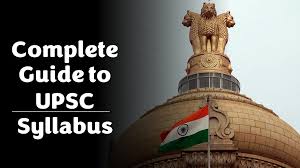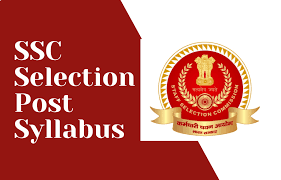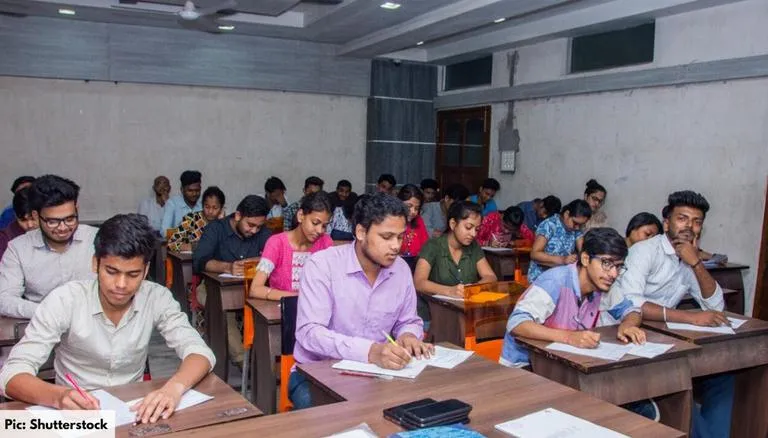UPSC syllabus for Government job:-
UPSC syllabus for Government job:
The UPSC (Union Public Service Commission) conducts various examinations for recruitment to various posts in the Indian Civil Services. The syllabus for the most popular examination conducted by UPSC, i.e., the Civil Services Examination (CSE), is as follows:

Preliminary Examination: Paper-I: (200 marks, 2 hours duration)
- General Studies: Current events of national and international importance, History of India and Indian National Movement, Indian and World Geography, Indian Polity and Governance, Economic and Social Development, Environmental Ecology and Biodiversity, and General Science.
- Current events of national and international importance:
- Stay up-to-date with news and events from reputable sources such as newspapers, magazines, and news channels. Some good sources to consider are The Hindu, Indian Express, Times of India, BBC, and CNN.
- Make a note of important events, developments, and issues that are likely to be relevant for the UPSC exam.
- Try to understand the significance and implications of these events, and how they might impact various aspects of society, economy, and governance.
- History of India and Indian National Movement:
- Focus on important historical events, personalities, and movements that have shaped India’s political, social, and cultural landscape.
- Some key topics to cover include ancient and medieval India, the Mughal Empire, the British Raj, the freedom struggle, and post-independence India.
- Read NCERT textbooks on history for classes 6-12, and refer to other books and resources such as Bipan Chandra’s “India’s Struggle for Independence” and Ramachandra Guha’s “India After Gandhi.”
- Indian and World Geography:
- Study physical geography, which covers topics such as landforms, climate, and natural resources, as well as human geography, which deals with population, urbanization, and economic geography.
- Learn about India’s diverse geographical features such as mountains, rivers, forests, and deserts, and their significance for the country’s economy and ecology.
- Familiarize yourself with world geography, including the location and significance of different countries, continents, and regions.
- Indian Polity and Governance:
- Understand the structure and functioning of India’s political system, including the Constitution, Parliament, judiciary, and executive.
- Learn about key institutions such as the Election Commission, the Comptroller and Auditor General (CAG), and the National Human Rights Commission (NHRC).
- Familiarize yourself with important provisions of the Constitution such as fundamental rights, directive principles, and the power-sharing arrangement between the Union and the states.
- Economic and Social Development:
- Study India’s economic development since independence, including the challenges faced by the country in areas such as poverty, inequality, and unemployment.
- Learn about different sectors of the economy such as agriculture, industry, and services, and the role played by the government in regulating and promoting these sectors.
- Understand important economic concepts such as GDP, inflation, fiscal policy, and monetary policy.
- Familiarize yourself with India’s social development indicators such as literacy, healthcare, and gender equality, and the initiatives taken by the government to address these issues.
- Environmental Ecology and Biodiversity:
- Learn about India’s rich biodiversity and the various ecosystems found in the country such as forests, wetlands, and coastal zones.
- Understand the challenges faced by the country in areas such as deforestation, climate change, and wildlife conservation.
- Familiarize yourself with key environmental laws such as the Wildlife Protection Act, Forest Conservation Act, and the Environment Protection Act.
- General Science:
- Study basic concepts in physics, chemistry, biology, and environmental science.
- Learn about important discoveries and inventions in science and technology, and their significance for society and the economy.
- Keep up-to-date with developments in science and technology, and their potential implications for different aspects of human life.
Paper-II: (200 marks, 2 hours duration)
- CSAT (Civil Services Aptitude Test): Comprehension, Interpersonal skills including communication skills, Logical reasoning and analytical ability, Decision making and problem-solving, General mental ability, Basic numeracy (numbers and their relations, orders of magnitude, etc.) (Class X level), Data interpretation (charts, graphs, tables, data sufficiency, etc. – Class X level).
- Comprehension:
- Practice reading and comprehending complex passages on a variety of subjects.
- Work on improving your vocabulary and ability to understand the nuances of language.
- Practice summarizing the main ideas and arguments presented in a passage.
- Interpersonal skills including communication skills:
- Focus on improving your communication skills, both verbal and written.
- Practice active listening, and be able to convey your thoughts and ideas clearly and effectively.
- Learn to work effectively in a team, and understand the importance of collaboration and cooperation.
- Logical reasoning and analytical ability:
- Practice identifying patterns, relationships, and logical connections between different concepts.
- Learn to solve problems using a logical and systematic approach.
- Work on developing your critical thinking skills, and be able to evaluate and analyze information from multiple sources.
- Decision making and problem-solving:
- Practice making decisions based on available information and analyzing the consequences of different options.
- Learn to identify and analyze problems, and develop effective strategies to solve them.
- Work on improving your decision-making skills in high-pressure situations.
- General mental ability:
- Practice solving different types of puzzles and brain teasers.
- Work on improving your memory and concentration.
- Learn to think creatively and develop innovative solutions to problems.
- Basic numeracy (numbers and their relations, orders of magnitude, etc.) (Class X level):
- Practice solving basic mathematical problems such as arithmetic, algebra, and geometry.
- Work on improving your ability to understand and use numerical data in different contexts.
- Develop a strong foundation in basic mathematical concepts such as ratios, proportions, and percentages.
- Data interpretation (charts, graphs, tables, data sufficiency, etc. – Class X level):
- Practice interpreting and analyzing different types of data, such as charts, graphs, and tables.
- Work on developing your ability to understand and draw conclusions from statistical data.
- Learn to identify relevant information and make decisions based on data analysis.
Mains Examination: Paper-A: (300 marks, 3 hours duration)
- Indian Language (selected from the Eighth Schedule of the Constitution)

Paper-B: (300 marks, 3 hours duration)
- English
- English is an important paper in the UPSC exam, and it consists of two parts – Essay and Comprehension & English Language. Here are some tips to prepare for the English paper:
- Essay:
- Practice writing essays on a variety of topics, including social, political, and economic issues.
- Develop a strong introduction, body, and conclusion for your essays.
- Use relevant examples and data to support your arguments.
- Work on improving your language skills, including grammar, vocabulary, and syntax.
- Comprehension & English Language:
- Practice reading and comprehending passages on a variety of subjects.
- Work on improving your vocabulary and ability to understand the nuances of language.
- Practice summarizing the main ideas and arguments presented in a passage.
- Learn to identify the tone, mood, and author’s purpose in a given passage.
- Work on improving your grammar and sentence construction skills.
- Learn to write effectively in different formats such as letters, reports, and summaries.
- Other tips:
- Read newspapers, magazines, and books to improve your comprehension and language skills.
- Watch English news channels and documentaries to improve your listening and comprehension skills.
- Practice speaking in English to improve your fluency and confidence.
- Take mock tests to get a sense of the exam format and improve your time management skills.
- Refer to previous year question papers and analyze the patterns and types of questions asked.
Paper-I: (250 marks, 3 hours duration)
- Essay
Paper-II: (250 marks, 3 hours duration)
- General Studies-I: Indian Heritage and Culture, History and Geography of the World and Society
Paper-III: (250 marks, 3 hours duration)
- General Studies-II: Governance, Constitution, Polity, Social Justice and International Relations
Paper-IV: (250 marks, 3 hours duration)
- General Studies-III: Technology, Economic Development, Bio-diversity, Environment, Security and Disaster Management

Paper-V: (250 marks, 3 hours duration)
- General Studies-IV: Ethics, Integrity and Aptitude
Paper-VI and Paper-VII: (250 marks each, 3 hours duration each)
- Optional Subject Papers (two papers)
- Paper VI and VII in the UPSC exam are the optional subject papers, where candidates can choose a subject of their choice from the list of subjects offered by the UPSC. Here are some tips to prepare for the optional subject papers:
- Choose the right subject: Choose a subject that you have a genuine interest in and have a good understanding of. It is also advisable to choose a subject that has some relevance to your academic background or career aspirations.
- Understand the syllabus: Carefully go through the syllabus for the chosen subject and understand the topics and sub-topics that will be covered in the exam.
- Study materials: Collect study materials such as books, journals, and previous years’ question papers related to the subject.
- Develop a study plan: Create a study plan that covers all the topics in the syllabus and gives you enough time to revise before the exam.
- Focus on fundamentals: Focus on understanding the fundamentals of the subject, as it will help you in answering both theoretical and practical questions.
- Practice writing: Practice writing answers to previous year question papers and mock tests. This will help you in improving your answer-writing skills and time management.
- Seek guidance: Seek guidance from teachers, mentors, and subject matter experts, who can help you in understanding the subject and preparing effectively.
- Revision: Revision is important, so make sure you revise all the topics and practice writing answers to different types of questions.
- Stay updated: Stay updated with the latest developments and trends related to your subject. This will help you in writing informed and relevant answers in the exam.
- Stay confident: Finally, stay confident and focused during the exam. Believe in yourself and your preparation, and give your best shot in the exam.

Note: The candidates have to choose one optional subject from the list of subjects given by the UPSC.
Interview: The candidates who qualify the Mains Examination are called for an interview, which carries 275 marks.
The final score of the candidates is calculated by adding the scores obtained in the Mains Examination and the Interview.

Candidates appearing for the UPSC exam have to choose one optional subject from the list of subjects given by the UPSC. The list of subjects includes a wide range of subjects such as history, geography, sociology, psychology, political science, economics, philosophy, literature, and many others. Candidates must choose a subject based on their interest, background, and understanding of the subject. It is important to choose a subject that one is comfortable with and can prepare effectively for the exam.








